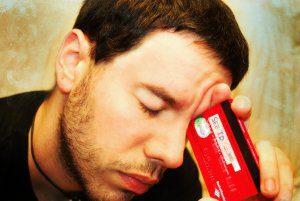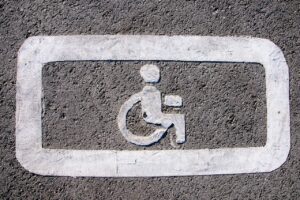When you are a student, you have your whole life in front of you. Don’t limit your opportunities right out the gate by taking on too much debt or by mishandling credit. Your focus is in the classroom to learn lessons to help you advance your career. Use the same approach to educate yourself about credit cards so that you can make good financial decisions that will help instead of hinder your future success.

“Students are presented with many opportunities to take out credit cards. First and foremost, you need to understand that credit does not equal free money, nor does it extend your spending power. Credit is a tool that can be used to build a solid credit history that will help you achieve your financial goals down the road,” says Jeff Schwartz executive director at Consolidated Credit Canada.
“Conversely, if credit isn’t used responsibly, it will have the opposite impact on your ability to achieve your goals. You’ll be playing catch up with your debt and having to work even harder to restore your credit history,” says Schwartz.
3 useful credit card tips for students
Tip #1 Beware the cash advance
The credit card is really just a short-term loan. When you make a purchase during your billing cycle (which in most cases is about 30 days) and you don’t repay it, interest will accrue on your balance. There is a small window (grace period) before the interest begins to build up.
The lesson? Don’t ever charge more than you can afford to pay off in a month. If you let your balance sit, you are literally paying more than you have to purchase an item. It’s not worth it.
Also, the best way to avoid a debt problem is to stop it before it has a chance to begin. A lot of credit card debt problems are not the result of major purchases that people can’t pay off. Rather they are the accumulation of small purchases that snowball over time until they are unmanageable.
Your credit card is not your debit card. When you take a cash advance off of your credit card, you begin to accrue interest right away. There is not a payment grace period. It is not like a purchase on a billing cycle.
Tip #2 Credit cards and your credit history
If you are carrying credit balances and don’t make payments on time it will create credit challenges down the road.
Decisions that you make today literally impact your future and the ability to mark major milestones like buying a house. Your payment history is the biggest factor contributing to your overall credit score. Food for thought before you spend beyond your means on your credit cards.
Tip #3 The problem with the minimum balance
Theoretically, making minimum payments on time will keep your credit in good health. However, making a minimum payment will do nothing to erase your debt. And what’s more, is as that interest continues to grow, so will your debt load, possibly to the point where you can’t pay the minimums anymore.




